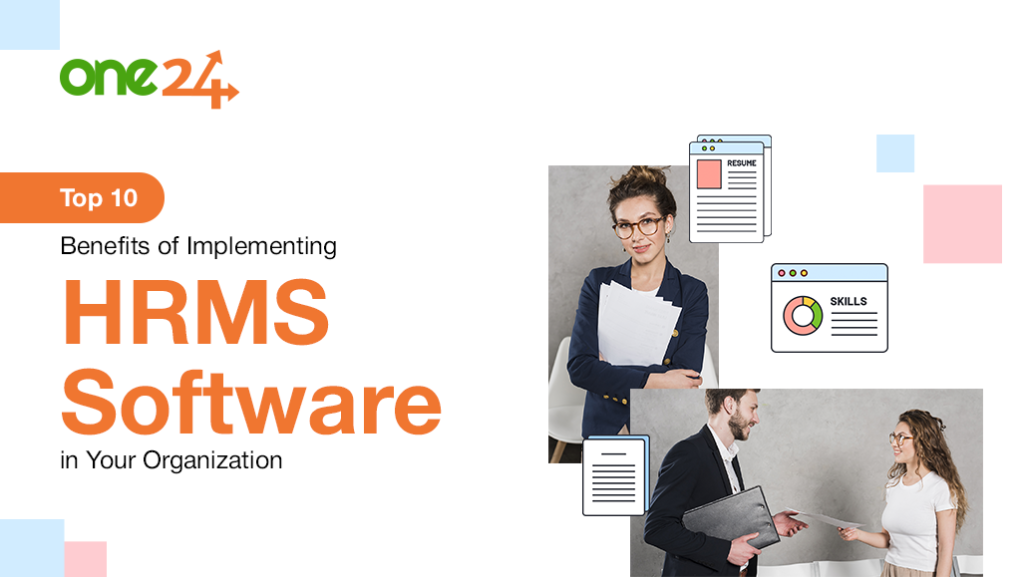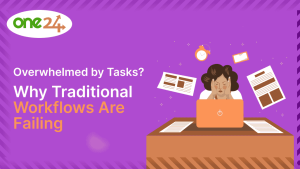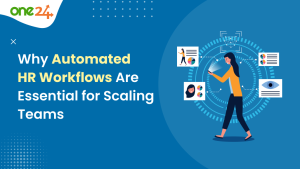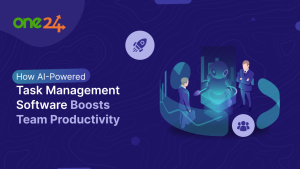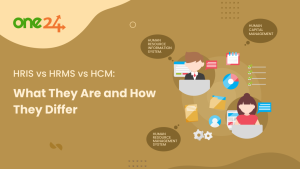Managing a larger workforce in today’s business perspective can be very complicated and has many considerations to find the balance to achieve efficiency, accuracy, and compliance. Human Resource (HR) specialists are continuously looking to find the balance in their administrative function, identify and advance employee satisfaction, and assist in developing an organizational strategy.
The answer is a Human Resource Management System (HRMS) software, to help prioritize HR functions, automate redundant functions, and increase workforce productivity. Whether you are at a startup level needing an organized method to manage HR data or an established business wanting to streamline core processes, implementing HRMS software will change how you perform HR functions. In this blog, we will explore the 10 key benefits of HRMS software and what it can do for HR functions.
Benefits of HRMS Software in Your Organization
1. Centralized Employee Information
HRMS software has one major benefit: everything about your employees can be contained in one, easy-to-access, centralized database. The employee’s personal information, employment history, performance reviews, and leave records are held in a virtual format, far away from paperwork, outdated files, or other serious bugs. With accessible information, HR teams do not have to worry about outdated information. It is up-to-date when they want to look.
2. Streamlined Recruitment Process
HRMS software streamlines and speeds up recruiting functions by utilizing a streamlined approach to Applicant Tracking, automated screening, interview scheduling, and onboarding workflows. This allows HR Teams to submit job postings, track candidate movement, search and collaborate with hiring managers, send correspondence to applicants, and much more, all within one platform. Time savings, while being able to attract and hire top talent!
3. Improved Employee Onboarding
Keep in mind that first impressions are extremely valuable, especially in organizations. An effective onboarding process can have a huge role in employee engagement and retention. HR management systems (HRMS) include many industry-best onboarding capabilities like establishing onboarding checklists, designing training modules, allowing for document uploads, and in many cases, providing e-signature capabilities, so new employees can have a seamless onboarding experience that is consistent from one new employee to another. As a result, when a new employee starts their new position, they are not burdened with paperwork and can start their new job running.
4. Time and Attendance Tracking
Tracking employee hours manually can cause errors, buddy punching, and outages on payroll for employees. HRMS software can now help automate payroll and attendance with biometric integration, mobile check-ins, or geofencing. Employees are able to track time spent performing tasks, request time off, and track attendance in this automated HRMS. For HR, this means accurate records, fast approvals, and no errors on payroll calculations.
5. Payroll Automation
Payroll is one of the most time-consuming responsibilities of an HR professional, and it can be expensive if mistakes are made. HRMS software calculates salaries, tax breaks, and benefits based on employee grading, attendance, and leaves. Organizations can manage payroll correctly and on time, and have statutory compliance using integrated payroll modules.
6. Performance Management and Appraisals
HRMS platforms present performance management features to provide regular feedback, goal setting, performance tracking, and appraisals. Managers can schedule reviews, provide feedback when it matters, and assess progress by KPIs. This real-time, data-inspired performance management establishes transparency, encourages improvement, and helps align employee goals with company goals.
7. Better Compliance and Risk Management
Labor laws, tax regulations, and employment policies can change a lot. HRMS solutions can help organizations best avoid compliance issues by keeping records up to date, automating statutory submissions, and providing audit trails for employee records. This should help reduce the risk of penalties, legal problems, or reputational harm at an individual organization. While also helping to ensure equitable, consistent applications of HR policies.
8. Enhanced Employee Self-Service
Today’s HRMS systems offer employee self-service to make personal changes, submit leave requests, access payslips, submit claims for reimbursement, and much more. Employee self-service reduces the burden of administration for HR teams while providing transparency, accountability, and engagement for employees.
9. Data-Driven Decision Making
Harnessing the benefits of analytics and reporting, HRMS software supports powerful data-driven choices for HR and business leaders. Informative analytics can be useful for tracking attrition counts, recruiting metrics, or productivity rates, for example. These HRMS dashboards feed valuable and actionable insights, which can drive strategic planning and workforce optimization.
10. Scalability and Customization
As your organization gains traction and grows, your human resources needs will grow, too. HRMS systems will grow with your organization. Whether it’s a new department, new geographic areas of expansion, or accommodating new hybrid work types, HRMS systems can be tailored to any requirement. Additional modules can be added or removed. Workflows can be redefined, and even user roles can be modified to prepare for future expansion.
The Conclusion
The business environment is more competitive than at any time in modern history, making the investment in HRMS software not an option, but a necessity. HRMS software allows HR teams to work smarter. HR teams can automate routine tasks, leading to more precise accuracy in the data captured and to a new, improved experience for employees. HRMS is more than just administrative efficiency – it is a strategic asset that helps to align people operations with organizational plans.
Whether you want to streamline hiring, mitigate compliance risk, or support remote teams, there are a myriad of reasons to implement an HRMS that will lead to improved HR solutions in the future. We are living in a digital age for HR. Are you going to take the leap?
Want to see One24 in action? Book a free demo.
Need more info? Contact our team – we’re here to help.

